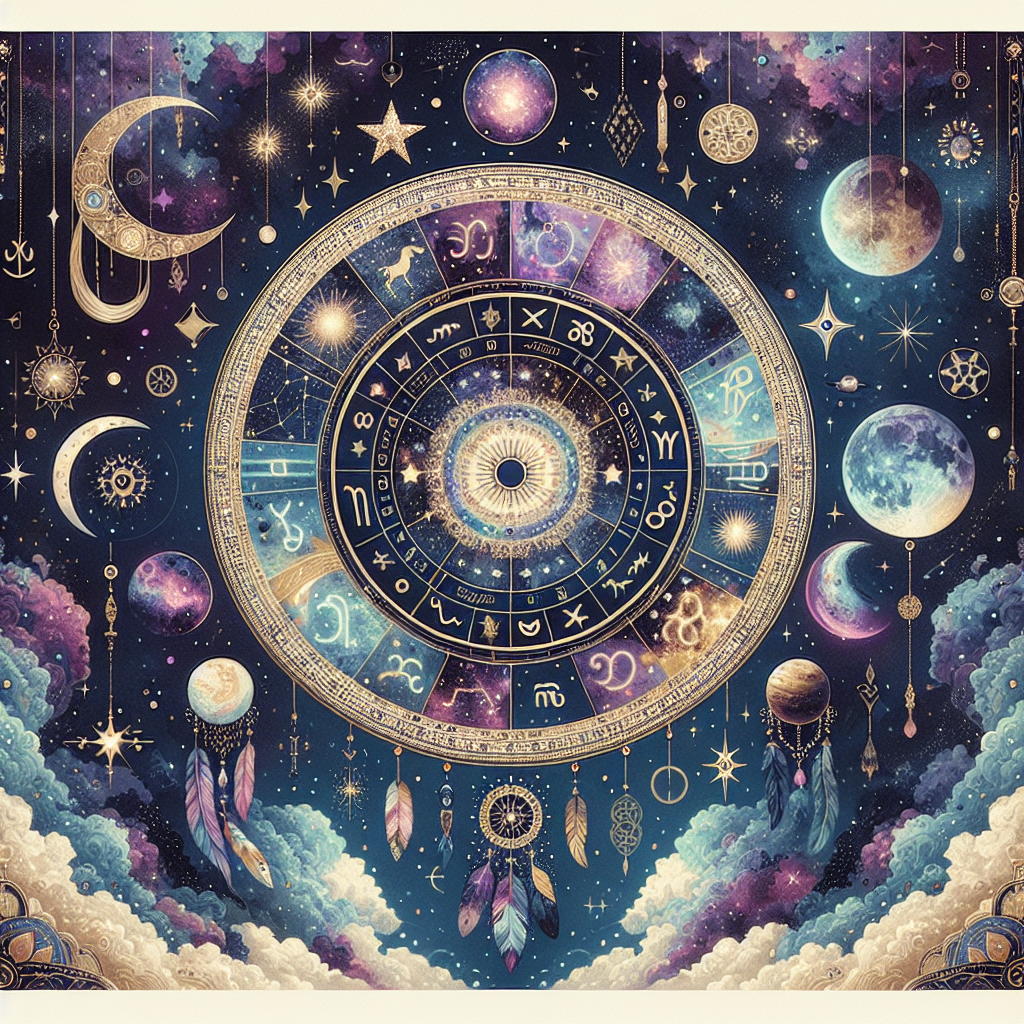Exploring Different Types of Astrological Systems
Astrology is a vast and fascinating field that has captivated people for centuries. With roots tracing back to ancient civilizations, it has evolved into various types and traditions, each with its unique perspective on how celestial bodies can influence our lives. In this blog post, we will explore the different astrological systems, their key characteristics, and how they can enrich our understanding of ourselves and the world around us.
1. Western Astrology
Western astrology is perhaps the most well-known astrological system in the world. It’s primarily based on the position of the sun, moon, and planets at the time of a person’s birth. This system uses the Tropical Zodiac, which divides the ecliptic into twelve signs.
Key Features:
Zodiac Signs: Aries, Taurus, Gemini, etc., each representing different personality traits.
Houses: Each of the twelve houses represents different areas of life, such as relationships, work, and communication.
Aspects: The angles formed between planets, affecting their influence over one another.
Benefits of Western Astrology:
– Offers a personal insight into one’s personality.
– Helps with understanding relationship dynamics.
– Provides guidance for future plans and decisions.
2. Vedic Astrology (Indian Jyotish)
Vedic astrology, or Jyotish, originates from ancient India and is an integral part of Hindu philosophy. Unlike Western astrology, Vedic astrology uses the Sidereal Zodiac, which is aligned with the fixed positions of stars.
Key Features:
Lagna (Ascendant): The rising sign at the time of birth is crucial for predictions.
Dasha System: A unique planetary period system that helps forecast significant life events.
Nakshatras: Lunar mansions that further specify personality traits.
Benefits of Vedic Astrology:
– Provides detailed predictions based on a person’s life cycles.
– Focuses on karma and its implications on an individual’s life.
– It incorporates remedies for reducing negative planetary influences.
3. Chinese Astrology
Chinese astrology is deeply tied to Chinese culture and philosophy. It follows a 12-year cycle, with each year corresponding to an animal sign, such as Rat, Ox, Tiger, and so on.
Key Features:
Animal Signs: Each sign is associated with specific traits and characteristics.
Five Elements: Wood, Fire, Earth, Metal, and Water interact with the animal signs to influence personality and fate.
Yin and Yang: Acknowledges dual energies that shape how we interact with the world.
Benefits of Chinese Astrology:
– Offers a broader view of personality based on the year of birth.
– Emphasizes balance and harmony in life.
– Provides insights into compatibility in relationships.
4. Hellenistic Astrology
Hellenistic astrology emerged in the Mediterranean region during the classical Greek period and is considered a precursor to many modern astrological systems.
Key Features:
Fate and Fortune: Focuses on the deterministic nature of celestial bodies.
Lots: Uses specific points derived from the birth chart (like the Part of Fortune) for deeper insights.
Predictive Techniques: Hellenistic traditions emphasize predictive techniques, making it a practical system for forecasting.
Benefits of Hellenistic Astrology:
– Offers a unique lens through which to view fate and free will.
– Enhances the understanding of timing in various aspects of life.
5. Tibetan Astrology
Tibetan astrology blends elements of both Indian and Chinese traditions. It’s a spiritual practice that takes the lunar calendar into account and emphasizes the influence of local culture.
Key Features:
Zodiac Animals: Similar to the Chinese system, but with its unique interpretations.
Elemental Categories: Each sign is associated with one of the five elements, including the space element.
Astrological Calendar: Used for significant events and personal timing.
Benefits of Tibetan Astrology:
– Offers a unique view of spiritual growth and rebirth.
– It helps in making decisions that align with the natural cycles of life.
Conclusion
Each astrological system has its unique charm, principles, and applications. By exploring these different types—Western, Vedic, Chinese, Hellenistic, and Tibetan—we can uncover various aspects of our personality and potential futures. Whether you are seeking guidance for personal growth, relationship compatibility, or life planning, astrology can provide valuable insights and wisdom.
If you’re new to astrology, consider experimenting with different systems to find what resonates with you. Remember, the beauty of astrology lies not just in predicting the future but understanding yourself and fostering deeper connections with others. Happy stargazing!

